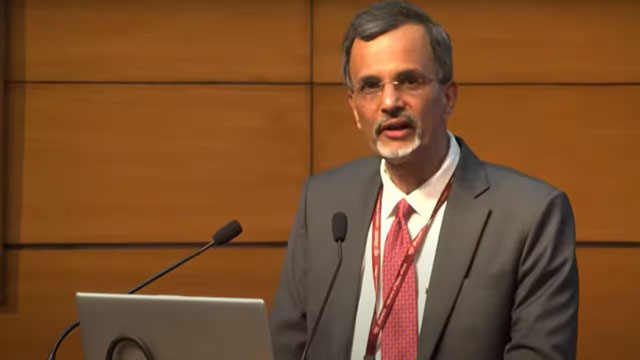Daijiworld Media Network - New Delhi
New Delhi, Nov 26: At a time when India’s small businesses are feeling the heat of the US’ 50 per cent tariff move, Chief Economic Advisor V Anantha Nageswaran on Tuesday stressed the need to instil a deeper culture of innovation, competitiveness and quality across the MSME sector.
Speaking at the launch of a report on MSMEs’ access to finance and timely payments, jointly released by FISME, Global Alliance for Mass Entrepreneurship and C2FO, Nageswaran said that while many small enterprises may be content with their current state, issues arise when this “contentment stems from the hurdles they face”.

“Just as we speak about treating MSME suppliers on par with large suppliers, we must continuously engage with them in instilling a culture of innovation, competitiveness and breaking into markets through quality,” he said. He added that ambition, too, needed strengthening. “If we remove the underlying hurdles, maybe the ambition factor will rise. Some of it is simply acceptance of difficult operating conditions.”
The report revealed that delayed payments owed to India’s MSMEs dropped by 7 per cent to Rs 8.14 lakh crore in 2023-24, compared to Rs 10.76 lakh crore in 2021-22. Despite this improvement, challenges such as low access to formal credit and slow payments continue to weigh heavily on the sector. The unmet credit requirement of MSMEs stood at around Rs 25 lakh crore.
Data from the Reserve Bank of India shows that outstanding bank loans to MSMEs touched Rs 12.99 lakh crore as on September 19, reflecting a robust 20 per cent rise year-on-year.
While government initiatives such as TReDS, Section 43B(h) of the Income Tax Act, MSME-1 disclosure requirements and the Samadhaan portal have helped create structured mechanisms, the report flagged weak enforcement, low participation and institutional bottlenecks as key barriers to their effective implementation. It also noted that schemes like Priority Sector Lending and Mudra loans, though expanding coverage, still fall short due to rigid banking practices, information gaps and the RBI’s stringent SMA/NPA classification norms.
Section 43B(h) mandates timely payments to MSMEs for companies to claim tax deductions, while MSME-1 forms must be filed by firms whose dues to registered MSMEs remain unpaid beyond 45 days. The SMA and NPA norms are RBI mechanisms to track repayment behaviour and identify stressed accounts.
Nageswaran emphasised that strengthening ambition and reducing barriers would be crucial to helping India’s MSMEs compete globally amid growing challenges.